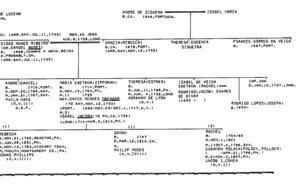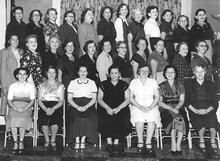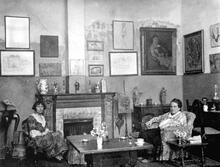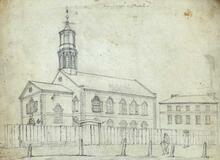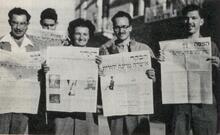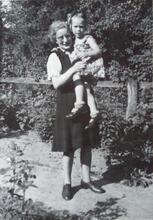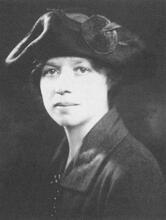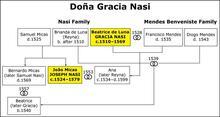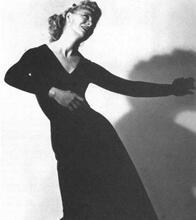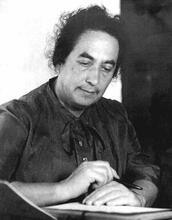Zipporah Nunes Machado Jacobs
Zipporah Nunes was born a Conversa in Portugal circa 1710. To avoid being re-examined by the Inquisition, her family fled to London in 1726 and began practicing Judaism openly. In 1733, she became one of the first Jews to settle in the newly formed colony of Georgia. Nunes passed on the memory of the hidden religious practices of Conversos to her children and great-children; despite openly practicing Judaism, she continued to use rosaries while reciting prayers. Her great-grandson was the Jacksonian Democrat Mordecai Manual Noah.
Article
Born in Portugal circa 1710, Zipporah Nunes began life as a Conversa, but ended it as an observant Jewish woman. In 1726, as Maria Caetana Nunes Ribeiro, Zipporah made a dramatic escape with her family from Lisbon to London, with the connivance of an English ship’s captain, in order to evade re-examination by the Inquisition for practicing Judaism in secret. Like her mother and sisters, Zipporah facilitated this escape by sewing jewels and money into her clothing. Returning openly to the practice of Judaism in London, she was later among the first group of Jews to settle in the newly-formed colony of Georgia in 1733. Zipporah kept alive the memory of the hidden religious practices of Conversos by passing them on to her children, grandchildren, and great-grandchildren, among whom was the Jacksonian Democrat, Mordecai Manual Noah. Noah remembered his great grandmother as a “very remarkable personage” because of her advanced age, her great beauty, her lofty dignity and her multi-lingual capacity, among other accomplishments. Noah gave the following account of his great-grandmother’s early experiences to George White, who published it in Statistics of the State of Georgia in 1849:
[T]hey had no synagogues or places of public worship, but assembled for devotional purposes in each other’s houses, and their prayerbooks were concealed in the seats of chairs, and opened by springs. It had long been observed that the families never ventured abroad on Friday evenings…and suspicions were awakened as to their real faith, although for form’s sake they all attended mass.
Though strongly attached to Judaism in her adult life, Zipporah never escaped the impact of her childhood as a Conversa. Noah himself observed that, even at an advanced age, she recited a prayer whenever the clock struck. This prayer was thought to relate to her imprisonment by the Inquisition. Another descendent, Isaac Phillips, reported that Zipporah and other women of the Nunes family for many years after their redemption as Jews continued to use rosaries while reciting prayers—a habit learned while young to lend the outward appearance of Catholicism to their activities.
Following the outbreak of war between Britain and Spain in 1740, Zipporah moved with her parents to New York, where she married David Mendes Machado, the hazzan (cantor) for Congregation Shearith Israel. They had three children. After Machado’s death in 1753, Zipporah married Israel Jacobs of Philadelphia, by whom she had one additional child. She died in Philadelphia in 1799.
Barnett, Richard D. “Dr. Samuel Nunez Ribeiro and the Settlement of Georgia.” In Migration and Settlement: Proceedings of the Anglo-American Jewish Historical Conference held in London jointly by The Jewish Historical Society of England and the American Jewish Historical Society, July 1970, 63-100. London: The Jewish Historical Society of England, 1971.
Barnett, Richard D. “Zipra Nunes’s Story.” In A Bicentennial Festschrift for Jacob Rader Marcus, edited by Bertram W. Korn, 47–61. New York: Ktav Publishing House, 1976.
Gitlitz, David M. Secrecy and Deceit: The Religion of the Crypto-Jews. Philadelphia: Jewish Pubn Society, 1996.
Phillips, N. Taylor. “Family History of the Reverend David Mendez Machado.” Publications of the American Jewish Historical Society, vol. 2 (1894): 45–61.
White, George. Statistics of the State of Georgia: Including an Account of Its Natural, Civil, and Ecclesiastical History; Together with a Particular Description of Each City, Notices of the Manners and Customs of Its Aboriginal Tribes and a Correct Map of the State. Savannah: W. Thorne Williams, 1849; reprinted Spartanburg, South Carolina: The Reprint Company, 1972.

